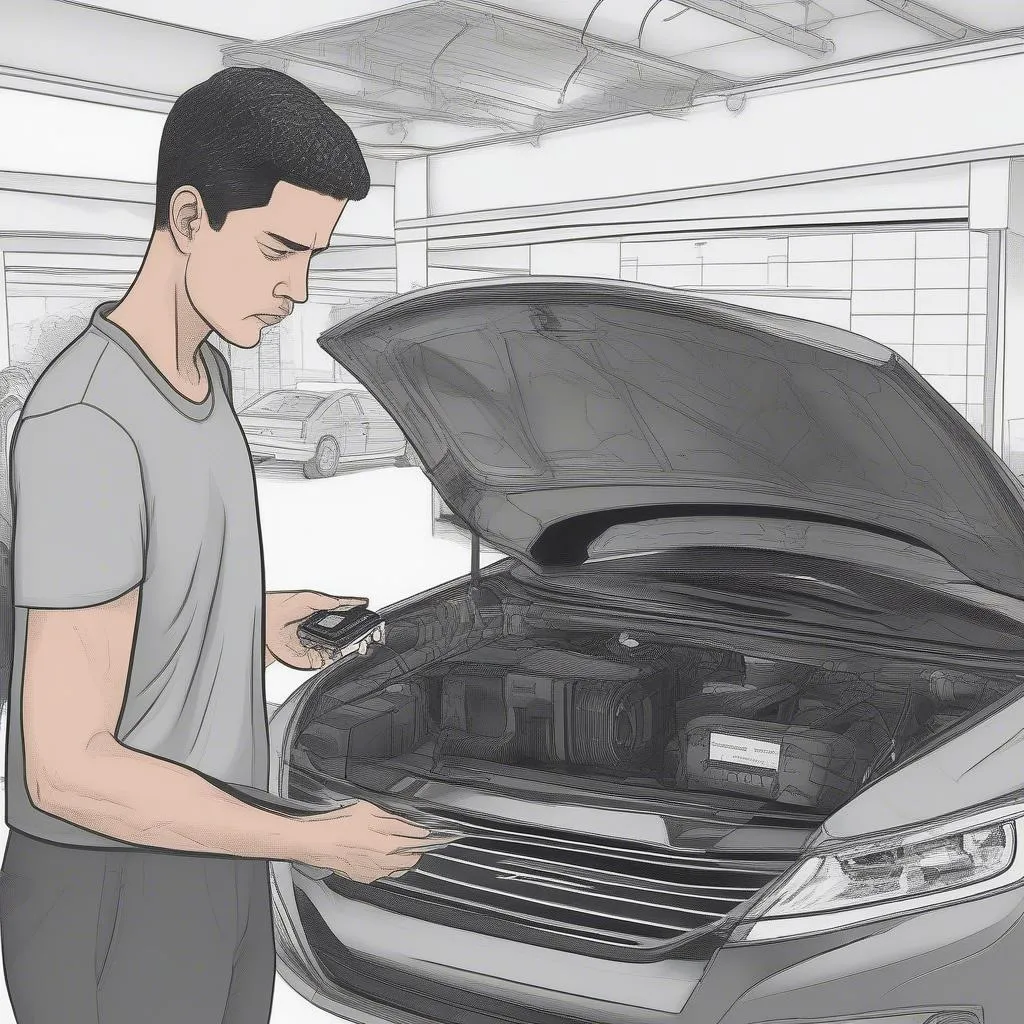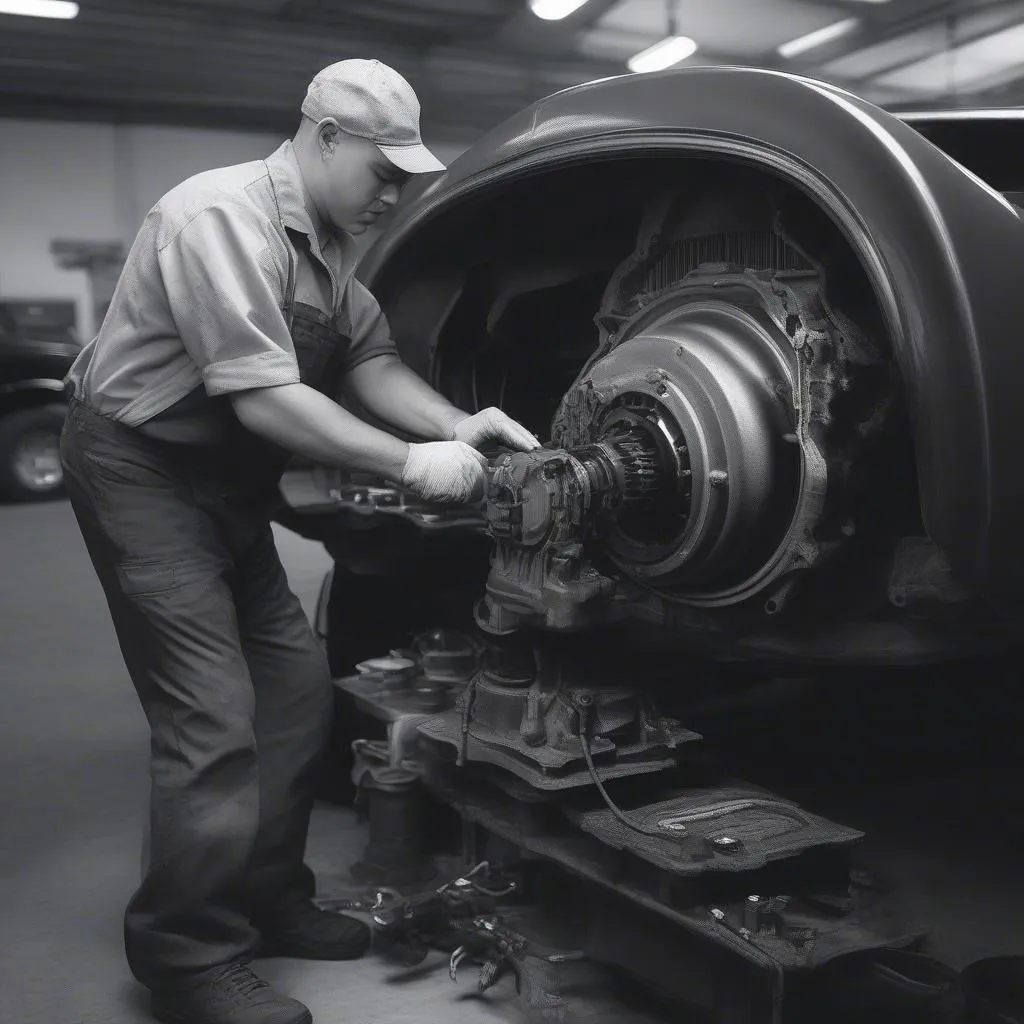Have you ever wondered if an OBD scanner could help you diagnose a transmission problem in your car? It’s a common question, especially for car owners who are trying to save money on repairs by diagnosing issues themselves. However, the answer isn’t always straightforward.
Understanding the Question: Can an OBD Scanner Pick Up Transmission Defects?
The question “Can an OBD Scanner Pick Up Transmission Defects?” is a complex one, and the answer depends on several factors, including the type of transmission, the severity of the defect, and the capabilities of the scanner.
The Perspective of an Automotive Technician
A skilled automotive technician might tell you that OBD scanners, while useful for many diagnostic tasks, have limitations when it comes to transmission issues. Some transmission problems might not even trigger a code that the scanner can read. This is because many transmission problems, such as worn clutch plates or internal valve body issues, don’t directly affect the vehicle’s emissions or engine control system, which the OBD system monitors.
The Technical Perspective
Technically speaking, OBD scanners primarily focus on the engine control system and its related components. While a transmission problem might indirectly affect the engine’s performance, it’s not the main area of focus for the OBD system.
The Economic Perspective
For car owners, the cost of repairs can be a major concern. A basic OBD scanner can be purchased for a relatively low price, and it might seem like a good investment for troubleshooting issues. However, if the problem lies within the transmission itself, a more advanced diagnostic tool might be needed.
Can an OBD Scanner Pick Up Transmission Defects?
So, to answer the question directly, an OBD scanner can sometimes pick up transmission defects, but not always. It depends on the specific problem and the type of scanner.
What Transmission Defects Can OBD Scanners Detect?
While OBD scanners might not be able to identify every transmission problem, they can detect certain issues, such as:
- Transmission fluid temperature sensor problems: An OBD scanner can read codes related to the transmission fluid temperature sensor. This sensor monitors the fluid temperature, and if it malfunctions, it can cause the transmission to overheat.
- Transmission control module (TCM) problems: The TCM is the electronic control unit for the transmission. OBD scanners can read codes that indicate problems with the TCM, such as internal failures.
- Solenoid problems: Solenoids are valves that control the flow of fluid within the transmission. OBD scanners can detect issues with these solenoids, such as sticking or malfunctioning valves.
- Shifting problems: Sometimes, transmission problems manifest as rough shifts or delayed engagement. Some OBD scanners can read codes related to these problems.
What Transmission Defects Can OBD Scanners NOT Detect?
However, there are many transmission problems that an OBD scanner cannot detect. These include:
- Worn clutch plates: This is a common problem in automatic transmissions. The clutch plates wear down over time, resulting in slipping or sluggish shifting. These problems might not trigger any OBD codes.
- Internal valve body issues: The valve body controls the flow of fluid within the transmission. Problems with the valve body can cause a variety of issues, including slipping, rough shifting, and even transmission failure. OBD scanners are not designed to diagnose valve body problems.
- Mechanical damage: Internal mechanical damage to the transmission, such as a broken gear or a damaged shaft, might not trigger any OBD codes.
- Transmission fluid level problems: An OBD scanner can’t check the fluid level, which can be a crucial factor in proper transmission operation.
What to Do When Your OBD Scanner Shows Transmission Defects?
If your OBD scanner detects a transmission problem, it’s important to take your car to a trusted mechanic for a proper diagnosis.
What to Expect During Transmission Diagnosis
The mechanic will typically perform a visual inspection of the transmission, check the fluid level and condition, and run a series of tests to identify the cause of the problem.
What Other Questions Do People Ask About OBD Scanners and Transmissions?
Here are some other common questions related to OBD scanners and transmissions:
- Can an OBD scanner tell me how much life is left in my transmission? Unfortunately, no. OBD scanners are not designed to predict future transmission problems.
- Can an OBD scanner reset transmission codes? Yes, some OBD scanners can clear codes. However, simply clearing the codes doesn’t address the underlying problem.
- Can I fix a transmission problem myself using an OBD scanner? It’s not recommended. Transmission repairs are complex and can be dangerous. It’s best to leave these repairs to a professional mechanic.
Want to Learn More?
If you’re interested in learning more about OBD scanners and their limitations, you can check out our article on GMC OBD-2 U1A48. This article explains the meaning of this specific OBD code and provides insights into how to troubleshoot it.
Need Help With Your Car Diagnostics?
If you’re facing car diagnostics issues, don’t hesitate to contact us! Our team of experienced technicians can provide 24/7 support and help you understand your car’s diagnostics better. Just reach out to us on WhatsApp: +84767531508.
Final Thoughts
While OBD scanners can be helpful tools, they’re not a substitute for professional diagnostics. If you suspect a transmission problem, it’s always best to consult a qualified mechanic.
Don’t forget to leave a comment below and share your experiences with OBD scanners and transmission problems!
 OBD Scanner and Transmission Problems
OBD Scanner and Transmission Problems
 Transmission Repair Costs
Transmission Repair Costs
